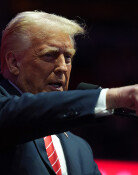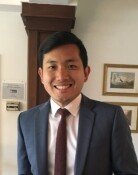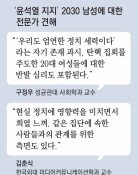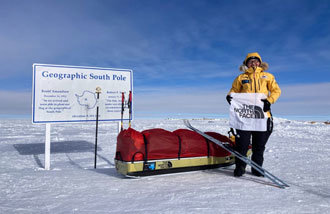Hwang Jang-yop and Kim Jong Un
Hwang Jang-yop, a former senior official of North Koreas ruling Workers Party and the highest-ranking North Korean to defect to South Korea, wrote in his memoir that the cult of personality of the North Korean leader becomes the idolization of power. In turn, this enslaves the North Korean people and makes the leader an idiot by pushing him into a self-fantasy, he said. Hwang died Sunday at age 87. On the same day, North Korean leader Kim Jong Il and his heir apparent Kim Jong Un attended a lavish military parade with some 20,000 troops to celebrate the Workers Partys 65th anniversary. Hwangs memoir provides the proper description of Pyongyangs stupidity of splurging a fortune on a parade at a time when its people are starving amid the worst economic situation in the country`s history.
The main architect of the Norths juche (self-reliance) doctrine, which is the basis of the North Korean dictatorship, Hwang happened to die on the day when the North was conducting a massive propaganda campaign for its anachronistic third-generation power succession. When Hwang, who assisted North Korean dictators Kim Il Sung and his son Kim Jong Il, defected to the South via China in 1997, Pyongyang could not hide its shock, though it said later, Go, traitor, if you will. Pyongyang repeatedly sent spies to the South to assassinate Hwang, only to fail each time. The North Korean dictator might feel relieved over Hwangs death but cannot forget what Hwang predicted about the communist regime.
Before his death, Hwang acrimoniously said the hereditary power succession will only accelerate the Norths ruin. Speaking to The Dong-A Ilbo just nine days before his death, he remained pessimistic over the Norths future, predicting that whoever succeeds Kim Jong Il will make no difference unless Pyongyangs fundamental problems are solved.
Hwang went to great lengths to let the South Korean people know about the Norths reality while serving as head or adviser to various groups and organizations. He testified about the Norths terrorist attacks on the South and provided a vivid account of the Norths acute famine in the mid-1990s.
Hwang gave sharp advice to South Koreans. If many South Koreans dont believe the truth about the Cheonan incident and side with Kim Jong Il, they cannot defend themselves let alone achieve reunification, he said. Only when his dream of rescuing the Norths 24 million people from tyranny and achieving reunification is realized can he rest in peace.






